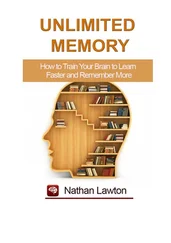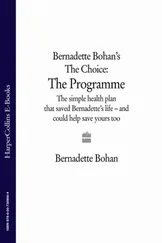The involuntary nervous system itself consists of two parts, the sympathetic and the parasympathetic. Of these, the sympathetic ‘sympathizes’ more demonstratively with our moods, hence its name. The action of the sympathetic nerves strengthens an animal’s defences against the various dangers which beset it, such as extremes of temperature, deprivation of water, attack by its enemies.
Have you ever seen a frightened animal standing stock-still from fear before taking flight? Its nostrils and its pupils dilate, its heart races, it breathes quickly. The sympathetic division of the involuntary nervous system has prepared it for fight or flight.
We human beings react in the same way when afraid. Fear begins as an impulse in our brain which excites the sympathetic nerves to stimulate various regions (skin) and organs (heart, lungs, intestines) to produce the signs and symptoms of fear – the sweating hands, racing heart, quick breathing, dry mouth, etc. The sympathetic nerves do this by means of a substance called adrenalin, which is released at the nerve terminals in the organs concerned. Also, our two adrenal glands, themselves under sympathetic nervous stimulation, secrete additional adrenalin into our bloodstream to enhance the action of the sympathetic nerves.
When we are afraid we also feel a horrible sensation in the ‘pit of the stomach’. This is the most distressing component of fear. However, the complete picture of fear includes all the symptoms induced by adrenalin, the sweating hands, racing heart, heaving chest, etc., as well as the spasm of fear felt in our ‘middle’.
Normally we do not feel our body functioning, because parasympathetic nerves hold the sympathetic nerves in check. It is only when we are overwrought (angry, afraid, excited) that the sympathetic nerves dominate the parasympathetic and we are conscious of certain organs functioning. A healthy body without stress is a peaceful body.
Most of us associate kindness and understanding with the word sympathetic, and as the reactions of the sympathetic nerves can be anything but kind, some people find it difficult to reconcile themselves to the term ‘sympathetic nerves’. Therefore, to avoid any bewilderment, I shall henceforth refer to the sympathetic nerves as the adrenalin-releasing nerves – which, after all, is what they are.
So, briefly, we have a Voluntary Nervous System by means of which we move our body; an Involuntary Nervous System, consisting of adrenalin-releasing and parasympathetic divisions which control the functions of our internal organs, each part balancing the other. Normally we do not feel our involuntary nervous system working, but when we are overwrought the adrenalin-releasing nerves are especially stimulated and we may feel our heart beat quickly, our hands may sweat and our mouth may feel dry. In addition, our stomach may ‘churn’, we may feel breathless, giddy, and may have an urgent need to retire to the toilet.
CHAPTER 3 What is Nervous Illness?
It will be appreciated that there are different grades of ‘nervous’ suffering. Countless people have ‘bad nerves’ and many of them, although distressed, continue at their work and cannot be said to suffer from nervous breakdown. Indeed, while they readily admit to having ‘bad nerves’, they would indignantly refute any suggestion of breakdown. And yet a nervous breakdown is no more than an intensification of their symptoms. Although this book is concerned mainly with the development and treatment of nervous breakdown, almost every symptom complained of by people with ‘bad nerves’ will be found here, and such people will recognize themselves again and again in the patients with breakdown described in the following chapters. The symptoms are the same, it is but their severity that varies. The person with breakdown feels these symptoms so much more intensely.
Where do ‘bad nerves’ end and where does nervous breakdown begin? By nervous breakdown we mean a state in which a person’s ‘nervous’ symptoms are so intense that he copes inadequately with his daily work or does not cope at all. Doctors are asked if people really ‘break’, and if so, how? We are also asked how a nervous breakdown begins and develops.
Many people are tricked into breakdown. A sudden or prolonged state of stress may sensitize adrenalin-releasing nerves to produce the symptoms of stress in an exaggerated, alarming way. This state of sensitization is well known to doctors, but so little known to people generally that, when first experienced, it may bewilder and then dupe its victim into becoming afraid of it. If asked to pinpoint the beginning of nervous breakdown, I would say that it is at the moment when a sensitized person becomes afraid of the sensations produced by severe stress and so places himself in a cycle of fear – adrenalin – fear. In response to his fear, more adrenalin is released and his already sensitized body is thus stimulated to produce even more and more intense sensations, which inspire more fear. This is the fear – adrenalin – fear cycle.
Most breakdowns are of two main types. One is relatively straightforward and its victim is mainly concerned with the distressing sensations brought by his sensitized nerves. In such people, nerves may be suddenly sensitized by the stress of some shock, such as an exhausting surgical operation, a severe haemorrhage, an accident, a difficult confinement; or, sensitization may come more gradually following a debilitating illness, anaemia, or too strenuous dieting. This person is often happy in his domestic life and work; indeed, he may have no great problem other than his inability, because of breakdown, to cope with his normal responsibilities.
The second type of breakdown is begun by some overwhelming problem, conflict, sorrow, guilt or disgrace. The stress of prolonged, fearful introspection gradually sensitizes nerves to react more and more intensely to the anxious introspection, until bewilderment and fear of the strange feelings sensitization brings, even of the strange thoughts it may bring, become as much part of the suffering as the original problem, conflict, sorrow, guilt or disgrace. Indeed, it may eventually be the main concern.
Конец ознакомительного фрагмента.
Текст предоставлен ООО «ЛитРес».
Прочитайте эту книгу целиком, купив полную легальную версию на ЛитРес.
Безопасно оплатить книгу можно банковской картой Visa, MasterCard, Maestro, со счета мобильного телефона, с платежного терминала, в салоне МТС или Связной, через PayPal, WebMoney, Яндекс.Деньги, QIWI Кошелек, бонусными картами или другим удобным Вам способом.












